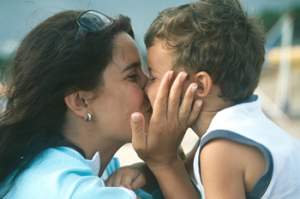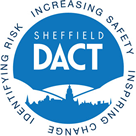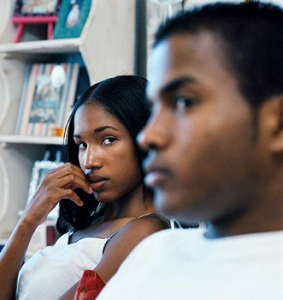Be Safe in Your Own Home
Whether you have chosen to stay in a relationship, are planning to leave or if the relationship is over, there are some ways you can make yourself safer. If you are scared or worried you can ring the Helpline on 0808 808 2241 to talk through your situation. The Helpline workers will support you to make your own choices. There is also a Personal Alarm service available through Sheffield domestic abuse services.
Also, a new ‘SmartWater’ initiative has been set up to help protect victims of domestic abuse. Using SmartWater can lead to reductions in repeat offending by perpetrators of abuse and better protection victims. Click here find out more or contact IDAS 0808 808 2241.
Important Telephone Numbers
Sheffield Domestic Abuse Helpline & Services which include the Sanctuary scheme : 0808 808 2241
National 24 hour Domestic Abuse Helpline: 0808 2000 247
Police: 999
In an emergency ring 999 and say your address first. There is now an online reporting function for domestic abuse here – this shows as ‘form’ in your browsing history and there is a quick exit button. Familiarise yourself with The Silent Solution system. This is a system for victims of domestic abuse who might be afraid of further danger and escalation of harm if they are overheard when calling 999 in an emergency.
When somebody calls 999, an operator will ask which emergency service is required. If you are is not able to ask for help, your call will be forwarded to a police system and you will hear an automated message.
If 55 is pressed by the caller, the system will detect this. The operator will then transfer the call to the relevant police force as an emergency. Click here to find out more.
Increasing safety – living with abuse
-
Tell children what to do if an attack happens or if you make an agreed signal and make sure they know not to try and protect you
-
Teach children the police emergency no. 999 and to say their name and address
-
Tell police about incidents; they can keep records without charging anyone and they can flag your address to respond quickly in an emergency
-
If you can, get injuries treated and recorded by medical professionals
-
Agree code words to alert friends if you call them so they know to ring the police
-
Is there somewhere you can leave extra clothes, money, keys or documents?
-
Think through which parts of the house are more dangerous if an attack is likely
- set up code words for safe contact – so that you can text or message someone to let them know if things are difficult without alerting the person who is abusing you.
- save your support worker’s number under a pseudonym or different name e.g. as the health visitor, your manager, a friend – anything that is realistic and safe
- think about who you are having contact with – a worker, friends or family who can raise the alarm if you need emergency help.
- think about where you can flee to if needed e.g. is there a neighbour or friend you can rely on?
- Have you got a health visitor, do you know the local neighbourhood police officer? Is there another worker you can keep in touch with?
- Think about what action you / your children can take if the situation gets worse at home – in an emergency how would you get out or raise the alarm?
- Refuge operates a ‘refuge chat bot’ offering help with issues with tech – such as phones, social media, whatsapp etc. see the bottom right of the screen on this page: https://www.refuge.org.uk/get-help-now/safety-planning-leaving-abuser/
- Advice for family and friends of people who are LGBT+ and affected by domestic abuse is here
If you fear an attack
- Move to a low risk area of house, away from the kitchen, garage or where there are knives or anything that can be used as weapons
- Avoid rooms or spaces you could be trapped in, like bathrooms or walk-in cupboards
- Be ready to leave the house in an emergency
Increasing safety – leaving abuse
- Try and leave when your partner (or family member) isn’t there.
- Take children with you, if you can – it may be hard to get them back later
- If it’s safe, try and take everything that you need, as you may not be able to return later
Getting things ready to leave
If you can, pack a bag and hide it somewhere safe or with trusted friends, family or neighbours.
- Birth Certificates – for you and children
- Money – bank books, cheque books, credit cards, benefits cards, books & letters
- Keys – house, car, work, friends or family’s keys
- Passports – visas, work permits, immigration papers
- Records of abuse – police reports, court orders, copies of medical records, workers contact numbers
- Driving licence – car registration & insurance documents
- Housing information – mortgage papers, rental agreements, insurance documents
- Legal documents – child contact court orders, divorce papers
- National Insurance numbers
- Clothing and toiletries – for you and children
- Medicine or medication – for you and children
- Important personal things – photographs, jewellery etc.
- Children’s favourite toys or blankets
- Address Book
Increasing Safety – when an abusive relationship is over
 Make sure that schools and childcare know who is allowed to pick up the children (consider using passwords)
Make sure that schools and childcare know who is allowed to pick up the children (consider using passwords)- If you are working, can you tell someone there and can they screen calls?
- Make sure people around you know to keep you safe (family, friends and neighbours, as well as work and schools)
- Change your routines, your routes to places you can’t avoid and don’t go to places you went together
- Think of who you can call if you’re feeling down and considering returning to the relationship
- Get emotional support from family and friends or domestic abuse services/groups to improve confidence and feel less like returning
- Get legal protection with a non-molestation order or an occupation order.
Making your home safer
- Change and strengthen external door locks
- Get stronger doors fitted with metal reinforcements
- Get a security system (alarm, door chains, spy-holes, window locks etc)
- Get outdoor lighting and smoke detectors
- Change landline and mobile telephone numbers and go ex-directory
In Sheffield, the Sanctuary Scheme can support you to make your home safer. They can provide security options like those above, personal alarms, and in serious cases a safety room.
If you have left the area
- Dial 141 to withhold your number before ringing anyone.
- Check your mobile phone hasn’t been ‘tracked’
- Ask solicitors/courts not to include your new address on any documents
- Explain to children that they shouldn’t tell the abuser (or their family) where you are now
In an emergency always ring 999 – if phoning from a mobile, say your address (where you are). If phoning from a landline and are unable to speak leave the line open so your location can be traced.
Personal Alarm Service
Sheffield domestic abuse services can offer referral to City Wide Care Alarms for a personal alarm in certain cases. The alarm consists of a panic button that you wear, plus a base unit that works through the telephone line. The panic button is for when there isn’t time to ring 999 or you cannot get to a phone. It currently costs £4.09 per week,with the contract and payment made directly with City Wide Care Alarms. In cases of hardship, where social care cannot help, an application for a contribution towards the cost may be made to the Sheffield DAP manager, for a limited period only. Contact the helpline for more information on 0808 808 2241.
The alarm service might help if you:
- are not eligible for a police alarm or a police alarm is not available
- are not eligible for the Sanctuary scheme
- are not living with the person you want protection from
- have a landline telephone (preferably BT)
About the alarm
The alarm is a button that can be worn around the neck or attached to clothing and has a range of 20 to 50 metres. The base unit needs to be near an electric power socket and out of the way of children and preferably somewhere not too obvious. But as the base unit also records disturbances it should be somewhere where it can record clearly.
How the alarm system works
- The panic button is for when there isn’t enough time to ring 999 or you cannot get to the phone.
- You should always ring 999 rather than use the alarm if it is safe to do so – this will be quicker and you can explain to the police control room exactly what is happening and what response is needed.
- The call centre will not respond to you verbally, they will alert the police control centre if it appears the alarm activation is genuine.
- Once the alarm has been activated the episode will be recorded by the call centre until the police arrive.
The alarm should only be used for genuine emergencies. Misuse may result in it being removed.




